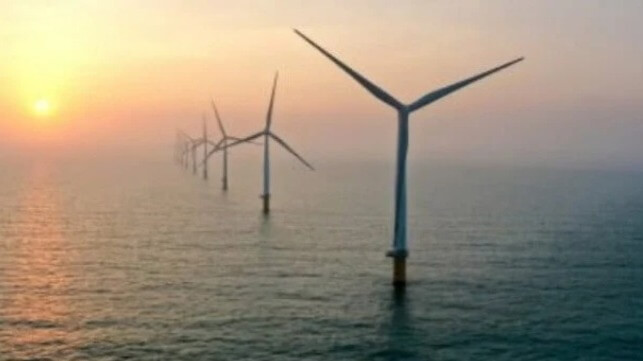New York Refuses Revisions to Offshore Wind Power Agreements Creating Doubt

New York State has put its ambitious plans for offshore wind energy in jeopardy after it declined requests from larger developers to renegotiate their power purchase agreements increasing rates to reflect current market conditions. The decision follows similar situations that have emerged in both Massachusetts and more recently Connecticut which are also threatening projects, while New York and New Jersey officials also continue to seek to push forward with the plans for offshore wind energy.
The decision of the New York State Public Service Commission on Thursday has set off a new round of industry fears. The price of the stocks of developers Ørsted and Equinor both were driven sharply lower on the news while the companies only said they would be forced to re-examine several projects. Ørsted’s stock price is now down by more than half from its 52-week high, falling nearly an additional nine percent for its U.S.-based depository receipts on Friday. While many other stocks in the sector were down today, Equinor rebounded closing the day up more than two percent.
The NYSPSC set off the concerns by announcing it had denied petitions from Empire Offshore Wind and Beacon Wind, being developed by Equinor and BP, and Sunrise Wind, being developed by Ørsted. Each of the petitions had requested an order from the commission that would have directed the New York power regulator New York State Energy Research and Development Authority (NYSERDA) to incorporate an adjustment mechanism into existing Renewable Energy Credit and the offshore wind power purchase agreements. The companies cited the impact of inflation and cost increases due to supply chain and other issues, which they say have combined to change the financial viability of the projects.
Developers in Massachusetts made similar arguments nearly a year ago. Like New York, the Massachusetts regulators denied the requests. This summer, Massachusetts however was forced to agree to let developers Eversource and Avangrid instead buy their way out of the agreements. The projects are delayed while they seek to rebid the power agreements, or the developers might ultimately walk away entirely. Connecticut also recently agreed to let Avangrid pay a penalty to end another agreement.
People are questioning if there will now be a similar fate for Ørsted’s 924 MW Sunrise wind proposal and BP and Equinor’s agreements for the first phase of Empire Wind (816 MW) as well as the second phase (1.2 GW) and the 1.2 GW Beacon Wind. The regulator said it was opting to preserve the competitive bidding process already completed and not to permit the companies to revise the terms without bidding. They said the proposals would have added between nearly seven to more than 10 percent to monthly energy bills.
New York State’s Governor Kathy Hochul quickly responded by detailing a new 10-point action plan to expand and support the renewable energy industry. She is saying the state will still push forward with an accelerated renewable energy procurement process. She said they will work with the federal government to address issues pointing to proposals such as a loan program office to help access low-cost financing. The state said it will also continue its investments to build out the transmission infrastructure.

that matters most
Get the latest maritime news delivered to your inbox daily.
Ørsted has already warned investors that it was taking a $2.3 billion charge against its U.S. offshore wind portfolio. The company cited the cost issues saying the portfolio was becoming financially unattractive and that it would be reviewing the projects. Despite the uncertainty in New York, in neighboring New Jersey, Ørsted on Wednesday struck a new agreement that allows the company to keep federal tax credits that it might have been required to refund to the state’s ratepayers. The company made a $100 million commitment to proceed with its Ocean Wind offshore wind farm placing the money in escrow. The project has 2024 milestones and the company is now guaranteeing it will be operating by December 2025 or forfeit the $100 million. Ørsted is also still moving forward with a small New York wind farm that is under construction.
The companies declined specific comments on New York’s decision saying that they would review the projects. They reiterated their position that inflation and increased costs require adjustments, saying the decision would raise further concerns about the economic viability of the proposed projects.
